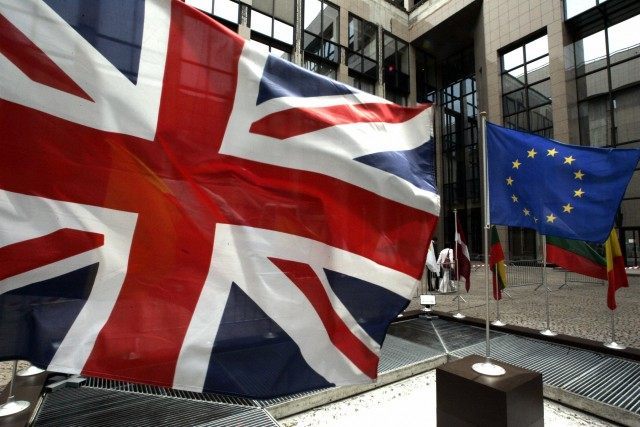A new EU exit poll by ICM has revealed that 40 per cent of Britons polled want to leave the European Union, while 43 per cent have told the pollster that they would vote to stay in. ICM’s last poll on the issue had a much wider gap between the two camps, with 59 per cent saying they would like to remain in the EU, and 41 per cent saying that Britain should leave.
But the numbers are thought to reflect a change in the wording of the EU referendum question, a position that holds up when you look at research into the matter.
Prime Minister David Cameron had initially wanted the question to be a ‘Yes’ or ‘No’ one, specifically: “should the United Kingdom remain a member of the European Union?”
This was altered on the advice of the Electoral Commission, who claimed the question might be perceived as biased towards the ‘Stay In’ camp.
Now, the question is expected to be, “Should the United Kingdom remain a member of the European Union or leave the European Union?”
Interesting ICM poll, their first using the new question, shows things getting closer on EU referendum: 43% stay, 40% leave, 17% don’t know
— Sophy Ridge (@SophyRidgeSky) September 15, 2015
This empowers the out camp, according to ICM’s own research. A study conducted in June revealed that when the question was changed, the margin dropped from 18 per cent to just 10 per cent. The latest poll may be a reflection of that, and may also reflect the public perception of the ongoing migrant crisis in Europe.
A Survation poll last weekend showed that a majority of Britons actually wanted to leave, with 51 per cent backing the Out campaign, and 49 per cent asking to remain in.
The difference between the Survation poll and the ICM one may well be the pollsters’ methodology.
ICM were embarrassed in 2014 when their methodology predicted a third place finish for UKIP in the European Elections. The party actually finished first.
Furthermore, Survation’s methodology has been known to reveal some extraordinarily accurate results, which in fact predicted to a great degree of accuracy, the “surprise” general election result in May of this year. The pollster didn’t release the results of its poll until after the election because its figures were so out of line with the consensus – it doubted them, in a move that CEO of the company Damian Lyons Lowe described as “something I’m sure I’ll always regret”.

COMMENTS
Please let us know if you're having issues with commenting.